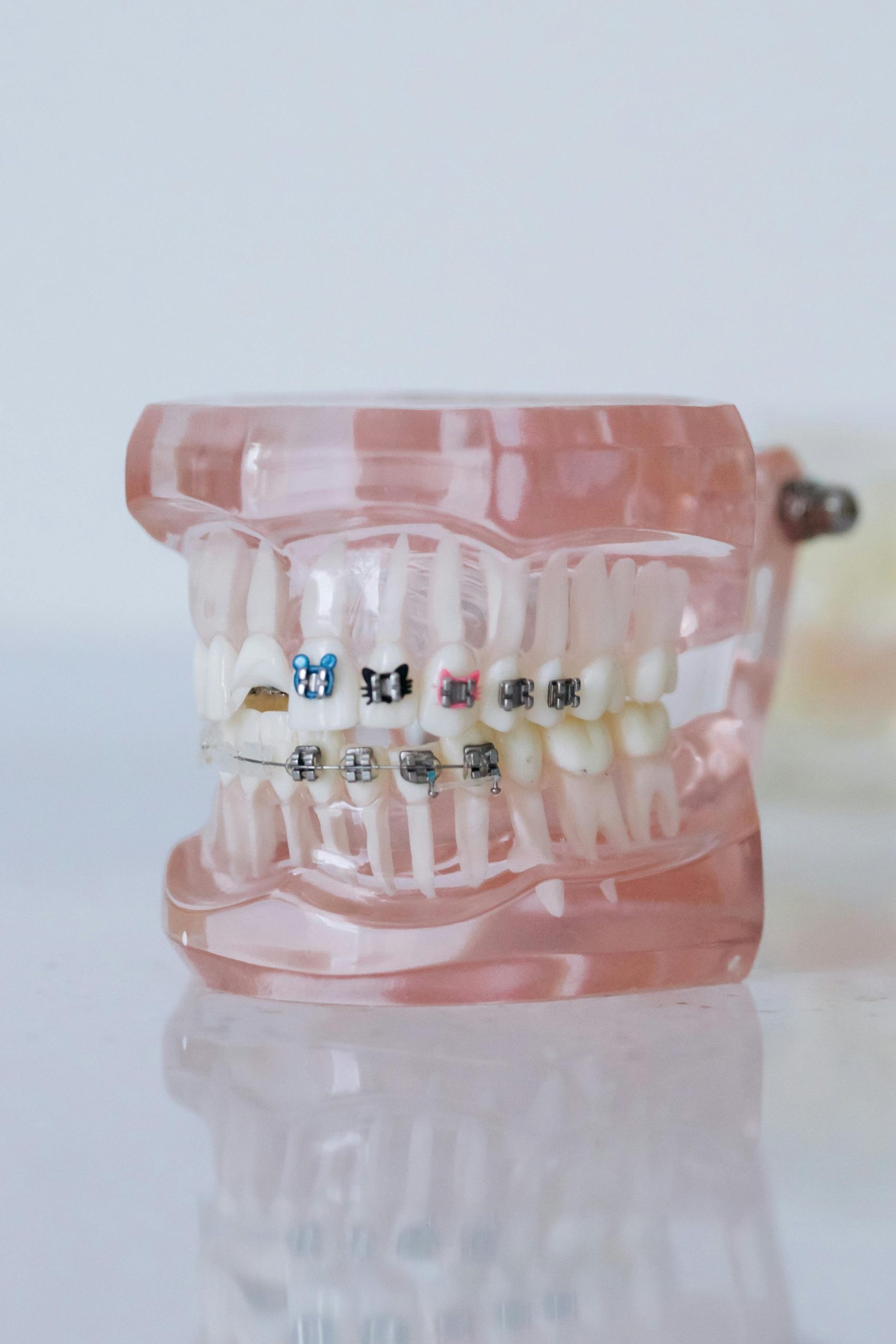Braces are a fantastic way to achieve a straighter, healthier smile, but they also require extra attention to dental care. Proper oral hygiene is crucial to prevent cavities, gum disease, and staining while wearing braces. Whether you’re new to braces or have had them for a while, these dental care tips will help you maintain a bright, healthy smile throughout your orthodontic journey.
1. Brushing and Flossing with Braces
Braces create additional nooks and crannies where food particles and plaque can accumulate, making thorough cleaning essential. Here’s how to brush and floss effectively:
Brushing Techniques
- Use a soft-bristled toothbrush or an electric toothbrush to avoid damaging wires and brackets.
- Brush at a 45-degree angle to clean around brackets and under wires.
- Spend at least two minutes brushing, focusing on each tooth individually.
- Rinse with water or mouthwash to remove loosened debris.
Flossing with Braces
- Use a floss threader or orthodontic floss to navigate around wires.
- Floss at least once a day to prevent plaque buildup between teeth.
- Consider a water flosser for an easier and more effective clean.
2. Choosing the Right Foods
Certain foods can damage braces or get stuck, leading to plaque buildup and decay. Follow these dietary tips to protect your braces:
Foods to Avoid
- Hard foods: Nuts, hard candies, and ice can break brackets.
- Sticky foods: Gum, caramel, and taffy can pull on wires.
- Crunchy foods: Popcorn and chips can lodge between braces.
Braces-Friendly Alternatives
- Soft fruits: Bananas, berries, and melons are gentle on braces.
- Cooked vegetables: Steamed carrots or broccoli are easy to chew.
- Dairy products: Yogurt and cheese provide calcium without risking damage.
3. Managing Discomfort and Emergencies
Braces can sometimes cause discomfort or minor emergencies. Here’s how to handle common issues:
Dealing with Soreness
- Rinse with warm salt water to soothe irritated gums.
- Use orthodontic wax to cover sharp wires or brackets.
- Take over-the-counter pain relievers if needed, as directed by your orthodontist.
Handling Braces Emergencies
- Loose brackets: Cover with wax and schedule an orthodontic visit.
- Poking wires: Use a pencil eraser to gently push the wire back or apply wax.
- Broken wires: Avoid cutting them yourself—visit your orthodontist for repair.
4. Regular Dental Checkups and Cleanings
Even with excellent at-home care, professional cleanings are essential to maintain oral health with braces.
Why Professional Cleanings Matter
- Dentists remove plaque and tartar that brushing and flossing miss.
- Early detection of cavities or gum issues prevents complications.
- Orthodontic adjustments ensure your treatment stays on track.
How Often to Visit
- See your dentist every six months for routine cleanings.
- Follow your orthodontist’s schedule for adjustments and progress checks.
5. Protecting Your Braces During Sports
If you play sports, taking precautions can prevent injuries and damage to your braces.
Wearing a Mouthguard
- Use an orthodontic mouthguard designed for braces.
- Replace it if it becomes worn or damaged.
Avoiding Contact When Possible
- Be cautious in high-impact sports like basketball or football.
- Inform your coach about your braces for additional safety measures.
Taking care of your braces requires diligence, but the results are well worth the effort. By following these dental care tips—brushing and flossing properly, eating braces-friendly foods, managing discomfort, attending regular checkups, and protecting your braces during activities—you’ll keep your smile healthy and bright throughout your orthodontic treatment. Remember, a little extra care now leads to a beautiful, confident smile for years to come!
